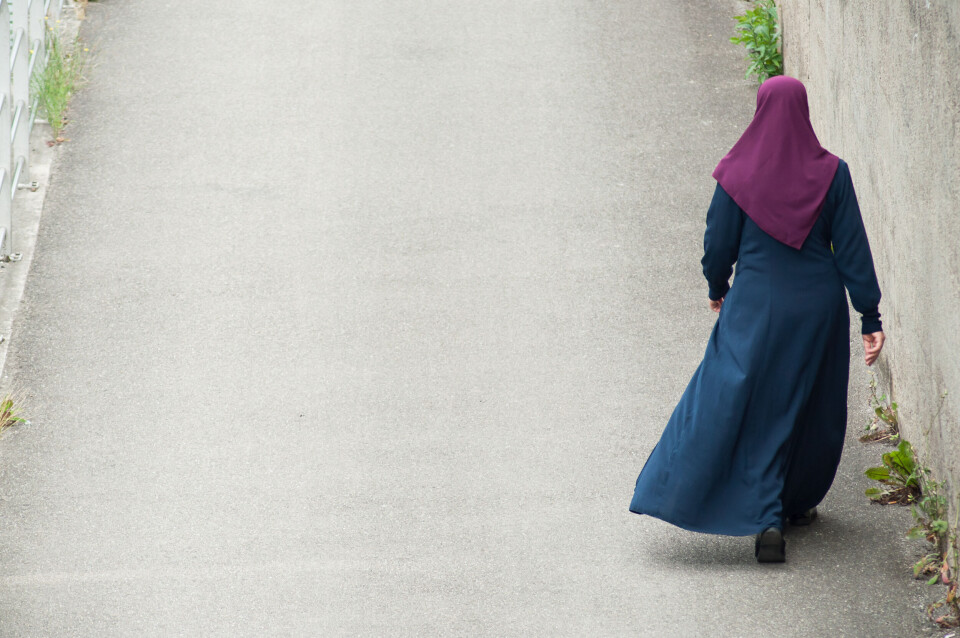-
New Paris-Jersey direct flight to launch this summer
Loganair route forms part of Channel Island’s tourism boost plan
-
Death of right-wing protester in Lyon sparks fears of further political violence
Quentin D, 23, died after reportedly being ambushed by far-left activists near site of political conference
-
Red flood alerts continue in south-west - and more heavy rain expected
Garonne river is particularly affected. French weekly weather forecast February 16 - 20
Abaya dress worn by some Muslim girls is banned from schools in France
‘When you walk into a classroom, you should not be able to tell what religion the pupils are just by looking at them,’ said the Education Minister

The abaya dress, which is worn by some Muslim girls, has been added to the list of clothing that is banned in French schools.
“When you walk into a classroom, you should not be able to tell what religion the pupils are just by looking at them,” said the French Education Minister Gabriel Attal during a televised interview on TF1 on Sunday night (August 27).
The abaya is a loose, full-length, long-sleeved garment that covers the whole body. It is worn by many women throughout the Arabian Peninsula and North Africa. While the abaya is not by itself considered to be religious attire, it was called a “clear marker of religion” by Sonia Backès, secretary of state of citizenship speaking to France Info in October 2022.
It joins an ever-growing list of clothing that is explicitly banned in French schools. Crop-tops, shorts, baggy trousers, ripped jeans, high heels and mini shorts have all been banned for years. However, the abaya joins the somewhat more exclusive and controversial list of items banned in the name of laicité.
What is laicité?
Under the principle of laicité, which approximately translates to secularism, individuals essentially have a duty to function as simple citizens when in the public sphere and not to outwardly display their ethnic, religious or idiosyncratic beliefs. Such beliefs can be displayed, and go unchallenged, however, in the private sphere or closed gatherings, such as in churches, synagogues or mosques .
Since the Law of March 15, 2004, the government has significantly clamped down on the wearing of religious items in schools, such as turbans, Islamic veils, crosses and kippahs.
Speaking on TF1, Mr Attal said that laicité “is not just a constraint, but also freedom. It is the freedom to forge one’s own opinion and to emancipate oneself through school.”
However, so-called ‘infringements’ on laicité have been on the rise since the 2020 decapitation of French school teacher Samuel Paty, according to a government memo obtained by Association France Press. Between 2021/22 and 2022/23 these ‘infringements’ increased by 120% with the display of religious symbols and the wearing of religious clothing constituting the majority of these.
Some items, such as the abaya, which as mere clothing is not necessarily religious in nature, would previously fall into a grey area.
‘Rules were not clear’
The main teachers’ union has reacted positively to the measure: “The guidelines were not clear before and now they are”, said SNPDEN president on Twitter. Prior to the minister’s decision, the onus fell on head teachers to decide whether to sanction students wearing abayas. “Now we can implement this decision[…] schools will not be alone in deciding what to do with abayas.”
Political rivals of President Macron’s Renaissance party have also spoken in support of it:
Socialist Amine El-Khatmi, a councillor in Avignon, tweeted: “This Islamist attire from Saudi Arabia has no place in our schools. It is good that it has been banned.”
The head of Les Republicans went further tweeting: “Communitarianism is leprosy and a threat to our Republic. We had called for the ban of abayas in schools several times. I welcome the decision of the Minister of Education, which shows we were right.”
There have been several dissenting voices, however, with Green MP Sandrine Rousseau pointing out that clothing bans represent a continuation of male control over women’s bodies.
“Last year it was crop tops that were banned… This year it is the abaya. It is all about society’s control over the bodies of women and girls, as ever,” she tweeted.
Related articles:
French seaside town bans bathers from wearing burkinis
Annual burkini row ‘demonises’ all five million muslims in France
Macron wants (some) pupils back at school a week earlier in France
























